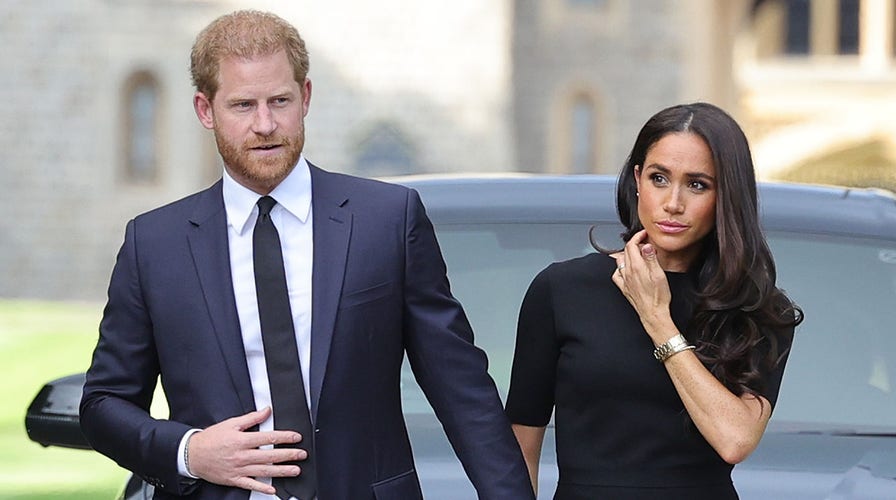The News
Prince Harry and Meghan Markle: A Royal Family’s Name Game
In a surprising twist, Prince Harry and Meghan Markle have stirred the pot with their recent decision to potentially change their family name.
This move comes at a time when the royal family is navigating its own challenges, particularly with King Charles III facing health concerns.
While many might view this as a mere name change, it reflects deeper issues within the family dynamics and public perception.
Harry's choice to embrace a new identity for his family raises eyebrows.
After all, he has been vocal about wanting to prioritize family unity.
Yet, this decision seems to contradict that sentiment.
It's curious how Harry and Meghan opted to pursue this change without consulting other family members, leaving many to wonder about their motivations.
The couple's new surname, Mountbatten-Windsor, is steeped in history.
This name was established in 1960 by then-Prime Minister Harold Macmillan, allowing descendants of Queen Elizabeth II to use it.
It's a blend of royal lineage and modernity, but it also signals a departure from the traditional Windsor name, which has long been associated with the British monarchy.
This shift in identity is not just a trivial matter; it has implications for how the couple perceives their place within the royal family.
By choosing to adopt the Sussex title, Harry and Meghan appear to be attempting to carve out a distinct identity separate from the royal family, which they have often criticized publicly.
Interestingly, this name change comes at a time when King Charles III is trying to maintain stability within the monarchy.
Reports suggest that he has had mixed feelings about Harry's recent actions.
While he wants to support his son, the king is also aware of the potential backlash from the public, especially in Wales, where sentiments towards the royal family can be quite strong.
As Harry approaches his 40s, there seems to be a growing desire to unify his family under one name.
However, one must ask: what was wrong with the Windsor name?
This question lingers, especially considering the historical significance of the Windsor lineage.
The king would likely have appreciated an opportunity to discuss this matter with Harry.
Public reaction has been varied.
Many people in Wales, for instance, have expressed their discontent with Harry's choices, feeling that they undermine the traditional values of the royal family.
It's evident that the relationship between Harry and the monarchy remains strained, and this latest development only adds fuel to the fire.
Moreover, it's important to recognize that this isn't just about a name.
It symbolizes Harry and Meghan's ongoing struggle to find their place within a family that has its own expectations and traditions.
Their desire to forge a new path is admirable but comes with its own set of challenges.
As the royal family grapples with these changes, the public remains engaged.
People are keenly watching how this story unfolds, especially with the added pressure of the media spotlight.
For Harry and Meghan, the stakes are high, and every move they make is scrutinized.
While Harry and Meghan may see this as a step towards independence, it raises questions about their commitment to the royal family.
Will they continue to push boundaries, or will they find a way to reconcile their desires with their heritage?
Only time will tell, but for now, the royal family's name game continues to captivate audiences around the globe.
As we witness this unfolding drama, it's clear that the complexities of royal life are anything but simple.
The interplay of tradition and modernity will undoubtedly shape the future of the monarchy, and Harry and Meghan are at the forefront of this evolution.






























































